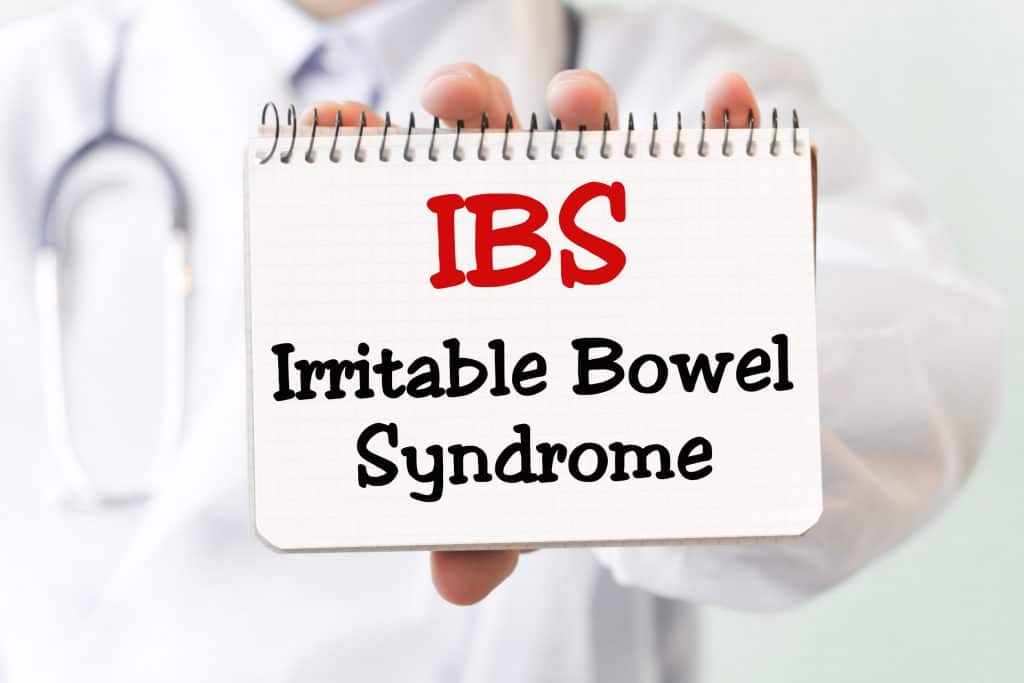IBS Triggers: Common Dietary and Medication Triggers, What to Avoid
Posted by Prescription Hope - See Editorial Guidelines (Last Updated On: Thu Apr 27 2023)
Irritable bowel syndrome (IBS) is a condition affecting one’s gastrointestinal tract (GI tract). It causes abdominal pain, constipation, and diarrhea. There are many different factors that can trigger IBS, and understanding them is crucial for individuals to avoid many of the symptoms.
So, in this article, we will discuss some potential IBS triggers and how they can cause symptoms. First, here is a quick summary to get us started.
What are IBS Triggers? IBS is different for everyone, and what triggers their symptoms will differ. There are many factors that can trigger IBS symptoms. This includes factors, such as dietary triggers, certain medications, environmental factors, and lifestyle choices. Understanding your IBS triggers can help you avoid the painful and embarrassing symptoms and help you live a higher quality of life.
Now that you have a brief explanation let’s get into how each of these IBS triggers can affect your symptoms.
Dietary Triggers

Here are some dietary triggers that patients should strive to avoid in order to help keep their IBS under control.
Insoluble Fiber
For the most part, fiber is very beneficial for your gut health. However, increasing your insoluble fiber intake all at once can cause increased bloating and gas, making IBS worse. Your body may react differently to various foods containing fiber. So, it is recommended to note the fiber-rich foods you are consuming and how you are feeling shortly after.
Gluten
Individuals that have celiac disease or gluten intolerance may have similar symptoms as IBS when they consume gluten. Your doctor may recommend that you do your best to avoid gluten to see if your IBS symptoms will improve.
Dairy
Many dairy products contain high amounts of fat, which can lead to diarrhea. Many people that struggle with IBS report increased symptoms after consuming dairy. Dairy has also been reported as causing inflammation, which can be an IBS trigger. If you experience flare-ups after consuming dairy, consider switching to an alternative, such as almond milk or even low-fat milk.
Fried Food
Fried foods, such as french-fries and fried chicken, are common in America. Unfortunately, eating too much fried food is very bad for your health and is much harder to digest than non-fried foods. The high fat content in fried food may be one of the major reasons this is a trigger for IBS.
Caffeinated Drinks
Many caffeinated beverages, such as coffee, can cause diarrhea due to its stimulation of the intestines. Therefore, individuals that have IBS may particularly have their symptoms triggered by having caffeine. Consider other alternatives that do not have caffeine but can stimulate your mind as a replacement.
Processed Foods
Processed foods are also very common in America, as most fast-food restaurants sell processed food. Processed foods, such as chips or premade frozen meals, are cheaper than healthier, natural foods making it an easy option for many. However, these types of food contain high amounts of added salt, sugar, and fat, causing health issues for many. The unnatural added ingredients often trigger IBS in many individuals. Look for more natural foods and consider cooking your own food to avoid highly processed meals.
Chocolate
Many chocolate products and candy bars contain high amounts of fat and added sugar. Many chocolate products also contain milk in some form. So, as mentioned throughout this article, all of these aspects can cause your IBS symptoms to flare-up.
Alcohol
The body digests alcohol differently than other food and drinks. It also causes dehydration, which affects the way your digestive system works. Many alcoholic drinks also contain gluten and added sugars, which, again, triggers IBS symptoms. So, next time you go out for a drink, look for a gluten-free beer or another drink with minimal ingredients.
Garlic and Onions
Garlic and onions have many health benefits, but they can be difficult for your intestines to break down. This can lead to excessive gas.
Broccoli
Similarly, broccoli is difficult for the intestines to break down. Many individuals experience gas after eating raw broccoli. Cooking the vegetable may make it easier to digest, limiting your chances of having IBS symptoms.
Artificial Sweeteners
Artificial sweeteners may seem like a great alternative at the surface level, but they can negatively affect your health. The ingredients contained in artificial sweeteners can lead to gas, discomfort, and bloating because it is difficult for the body to digest them.
Medication Triggers
Many people throughout the country are on various types of medications. Some of these medications are for chronic conditions, and the medicine is needed for them to live a healthy and satisfying life. Unfortunately, some of these prescription drugs are considered IBS triggers and may lead to flare-ups of symptoms.
Here is a list of potential drugs that can trigger your IBS.
Chemotherapy Drugs
Some patients taking chemotherapy drugs may experience IBS symptoms. Many of these medications have side effects and can make it difficult for patients to digest food. So, gas, bloating, cramping, abdominal pain, and diarrhea can occur after taking your chemotherapy drug. If you have IBS and need to take an anticancer medicine, then talk to your doctor about potential ways to prevent these side effects from occurring.
NSAIDs

Non-Steroidal Anti-Inflammatory Drugs (NSAIDs) are often prescribed to treat inflammatory conditions. Studies claim that NSAIDs are responsible for gut mucosal injury and other adverse effects. Due to how these medications work, they can cause the digestive tract to lose the substances that protect it. Taking NSAIDs on an empty stomach can even cause bowel issues for individuals that do not have IBS. This is why NSAIDs are not recommended for patients that have Crohn’s disease or ulcerative colitis.
Medicines Containing Sorbitol
Sorbitol is a sugar alcohol that is often used within the pharmaceutical industry. Many popular medications may contain sorbitol, such as Ibuprofen, metformin hydrochloride, certain antibiotics, and certain antidepressants. It is particularly popular in liquid medications, as it helps sweeten the flavor. However, taking any drugs that contain this ingredient can cause your IBS symptoms to flare-up. This is because your body’s digestive system may not properly absorb and digest sorbitol, leading to diarrhea, gas, and bloating.
Other Triggers
There are some other IBS triggers outside of these categories. They often involve factors surrounding our environment and lifestyles. Here are a few possible IBS triggers related to this.
Stress
Chronic stress can wear on your immune system over time. This makes your body more susceptible to possible illnesses and other problems. Stress can lead to an abnormal fluctuation in our hormones, causing an imbalance of bacteria in our gut. This imbalance of bacteria often results in symptoms of IBS.
Menstrual Cycles
A woman’s menstrual cycle contributes to fluctuations in sex hormones. The fluctuation of these sex hormones is often a contributing factor to IBS symptoms, such as bloating and abdominal pain. Women who have IBS or experience increased symptoms during their period may benefit from keeping a food diary to see how different foods affect their symptoms.
Sleep
Not only can IBS cause disruptions in one’s sleep, but poor sleep can lead to an increase in IBS symptoms. Sleep deprivation greatly weakens our immune system, which leads to disturbances in the health of our digestive system. A lack of sleep may also contribute to more stress, worsening IBS symptoms.
Closing Thoughts
We hope this has helped you understand more about IBS triggers and ways you may be able to improve your symptoms. If your symptoms do not improve naturally or on their own, then your doctor may suggest certain prescription drugs to help you manage your condition.
If you are struggling to afford the medications you have been prescribed, then Prescription Hope may be able to help. We work directly with pharmaceutical manufacturers to provide patients with the medicines they need at a set, affordable cost. Enroll with us and start paying just $60.00 a month through Prescription Hope’s medication access service for each of your prescription drugs .


